Iran’s steel industry grinds to a halt due to electricity cuts
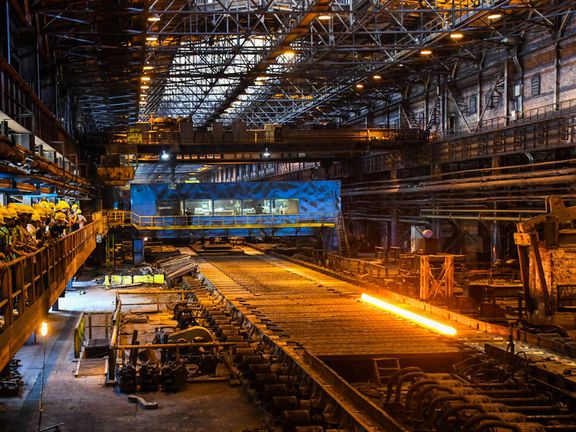
Nearly all steel production units in Iran have shut down due to severe electricity shortages, according to a senior industry official.

Nearly all steel production units in Iran have shut down due to severe electricity shortages, according to a senior industry official.
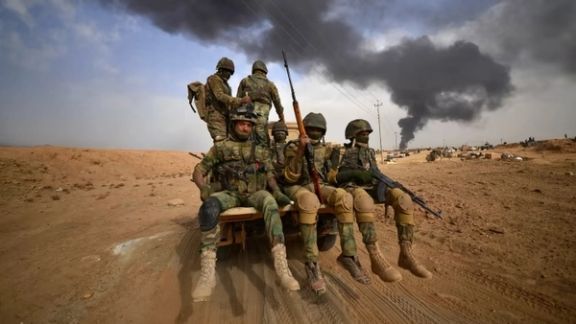
Iraqi Prime Minister Mohammed Shia al-Sudani said that his government thwarted 29 attempted missile and drone attacks by Iran-aligned armed groups during the height of the war between Israel and Iran.
In an interview with the Associated Press published Tuesday, al-Sudani said the attacks were aimed at Israel and US military bases inside Iraq.
“These operations were neutralized by Iraqi government security measures,” he said, though declined to elaborate on details.
“We know that the Israeli government had a policy — and still does — of expanding the war in the region. Therefore, we made sure not to give any justification to any party to target Iraq.”
The prime minister said his government engaged in direct communication with Iranian leaders during the crisis, encouraging de-escalation. “We reached out to leaders in Iran to urge them toward calm and to make room for dialogue and a return to negotiations,” al-Sudani said.
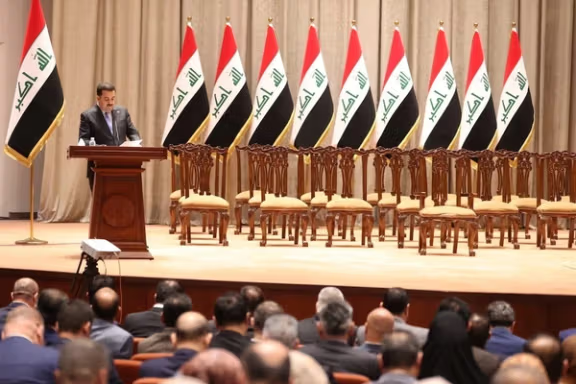
Since the 2003 US invasion that ousted Saddam Hussein, numerous militias have emerged in Iraq, many with ties to Iran. Following the outbreak of the Israel-Hamas war in October 2023 and the recent Israel-Iran escalation, including US strikes on Iranian nuclear sites, the pro-Iran factions have periodically targeted US bases in Iraq.
Groups within the Popular Mobilization Forces (PMF), an umbrella group of mostly Shia armed groups originally formed to fight the Islamic State and then integrated into Iraq's security forces, have been among those involved.
Al-Sudani acknowledged that the continued presence of the US-led anti-ISIS coalition has provided a “justification” for such groups to remain armed. The withdrawal process began in 2023, but is not yet complete.
“When the coalition withdrawal is complete, there will be no need or justification for any group to carry weapons outside the scope of the state,” he said.
Future of Popular Mobilization Forces
A focal point of US-Iraqi tensions lies in the future of the PMF. Though nominally under Iraqi military command since 2016, many PMF units maintain strong ties to Iran and operate with broad autonomy.
A new bill in Iraq’s parliament is aimed at formalizing the PMF’s status within the security apparatus, a move that has drawn criticism from Washington. The US State Department recently warned the legislation “would institutionalize Iranian influence and armed terrorist groups undermining Iraq’s sovereignty.”
Al-Sudani, however, defended the initiative, saying that it is part of an effort to ensure that arms are controlled by Baghdad. “Security agencies must operate under laws and be subject to them and be held accountable,” he said.
Kurdish region attacks
In recent weeks, a series of drone attacks targeted oil facilities in northern Iraq’s Kurdish region, with Kurdish regional authorities blaming groups in the PMF. Baghdad has denied it, but has not publicly named any perpetrators.
Al-Sudani called the attacks a “terrorist act” and said his government is working with Kurdish authorities and coalition forces to identify those responsible and hold them accountable.
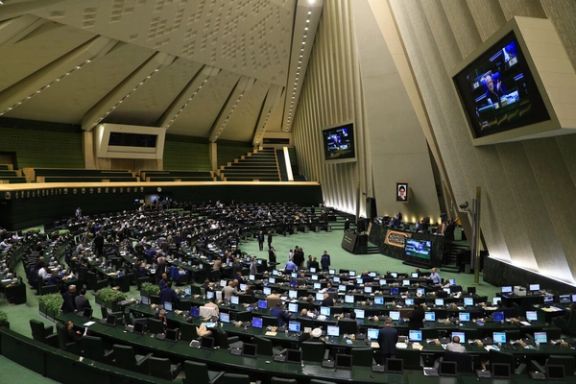
An Iranian lawmaker on Tuesday urged a vote on a draft proposal to bar US talks unless the Gaza blockade ends, a day after President Trump accused Tehran of blocking ceasefire efforts.
“I drafted a proposal and requested it be reviewed as a double-urgency item,” Tehran lawmaker Hamid Rasaei said in parliament. “According to this proposal, any negotiations with the US must be tied to the end of the Gaza siege. I keep following up, but this proposal is not being raised.”
Rasaei said the proposal also covers negotiations with France, Germany and the UK, and cooperation with the International Atomic Energy Agency. “This is not just about the US,” he said. “The crimes in Gaza are happening with the full backing of Europe, and the agency cannot be treated as neutral while silence continues.”
He called the proposal a direct response to Western support for Israel’s war in Gaza. “Even the German chancellor says the Zionist regime is doing their dirty work,” Rasaei said. “So long as Gaza is under siege, Iran cannot continue talks as if nothing is happening.”
Trump blames Iran, warns of military action
Trump on Monday accused Iran of playing a role in blocking ceasefire efforts. “I think they got involved in this negotiation, telling Hamas, giving them signals and orders,” Trump said while visiting the UK. “And that’s not good.”
He also threatened military action if Iran resumes its nuclear program. “If they do, we’ll wipe it out faster than you can wave your finger at it,” he said.
Iran rejected the accusations and accused Washington of shifting blame. The foreign ministry said the US is directly responsible for enabling Israel’s actions in Gaza and called Trump’s remarks a form of deflection.
Speaker defends delay in parliament
Rasaei also criticized parliament’s leadership for delaying the bill, despite a rule that requires committee review of proposals within ten days when backed by ten members. “It has not even been sent to the commission,” he said.
Deputy Speaker Hamidreza Hajibabaei acknowledged the delay but said some bills carry broader consequences. “I agree proposals should be reviewed, but in some cases, they affect the whole system,” he said. “That doesn't mean your proposal won’t be examined.”
Rasaei insisted the urgency of the matter cannot be ignored. “This is the least we can do while Gaza is being bombed and starved. Let the people see where each lawmaker stands.”
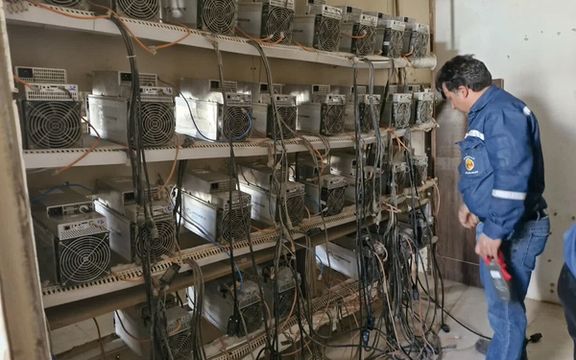
Iranian energy officials have sounded the alarm over the impact of cryptocurrency mining on the national electricity grid, saying that crypto mining now accounts for as much as 15 to 20 percent of Iran's electricity imbalance.
According to Mohammad Allahdad, deputy director of power generation, transmission and distribution of Iran’s power company, Tavanir, crypto mining operations are responsible for consuming nearly 2,000 megawatts (MW) of electricity — roughly the output of two Bushehr nuclear reactors.
“While this represents around 5% of total electricity consumption, it accounts for up to 20% of the current power deficit,” Allahdad said on Monday, calling the figure significant and alarming.
During a recent internet outage linked to the conflict with Israel, power consumption nationwide dropped by 2,400 MW, which Tavanir attributes to the shutdown of over 900,000 crypto mining devices operating illegally -- further validating the scale of their impact.
Allahdad’s remarks come amid growing concerns over blackouts, infrastructure strain, and public discontent during the country’s sweltering summer months when electricity demand peaks. Amid blistering summer temperatures, electricity demand from air conditioners, agriculture, and industrial production surges.
Allahdad stressed that using power for crypto mining during high demand days is “not only illegal and unethical, but also harmful,” adding that it risks voltage drops, fuse failures, damage to household appliances, and even fire hazards.
“Crypto mining devices produce intense heat,” he said. “We’ve had multiple reports from fire departments about fires linked to mining rigs, some of which spread to neighboring homes.”
Illegal farms hidden in plain sight
Authorities say abandoned homes, empty shops, warehouses, and industrial buildings are often repurposed for clandestine mining operations. These facilities frequently feature high electricity usage and surveillance cameras, which serve as red flags for investigators.
“Identifying these operations is challenging,” Allahdad said, “especially in large industrial areas. That’s why public cooperation has been crucial.”
To support enforcement efforts, Tavanir launched a public reporting line. Citizens who report illegal operations can receive rewards of up to 200 million tomans (about $2,300).
One bitcoin equals 440 homes
According to Hadi Sefidmou, head of Iran’s Crypto Mining Oversight and Regulation Initiative, producing a single Bitcoin with older mining devices can consume up to 1 million kilowatt-hours (kWh) — equivalent to the annual power use of 440 Iranian households. Even newer miners with better efficiency still consume significant amounts, with average power usage per unit ranging between 2 to 3.5 kW.
Given that each device operates 24/7, each illegal miner consumes as much power as 12 households, Sefidmou said.
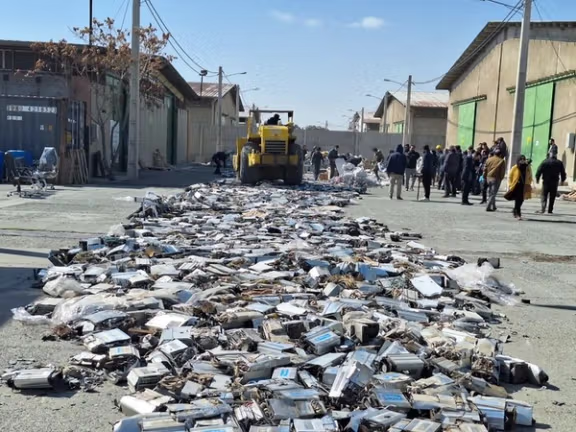
Crackdowns accelerate
As enforcement intensifies, seizures of mining equipment have surged since last year. Over 250,000 illegal devices have been seized across Tehran, Khorasan Razavi, Isfahan, Fars, Kerman, and East Azarbaijan, with most units hidden in abandoned homes, rural farms, industrial ruins, and suburban villas.
Just this week, 108 mining rigs were confiscated in the southern city of Ahvaz, discovered in an abandoned factory in the village of Khabineh, according to Mohammad Forati, CEO of Ahvaz Power Distribution Company. Forati said the operation had caused voltage drops across the area, prompting citizen complaints.
Mahmoud Mahmoudi, managing director of the Markazi Province Power Distribution Company, said on Tuesday that 445 cryptocurrency mining devices have been identified and confiscated in the province since the beginning of the current year (March 21).
Another recent case in Alborz province saw 26 crypto farms shut down from March to June alone, with 168 unauthorized devices confiscated. In another incident last week, power company staff in Alborz intercepted a vehicle transporting 26 miners.
Iran’s subsidized electricity remains among the cheapest in the world.
“With electricity consumption hitting new records — above 70,000 MW — we cannot afford to ignore this,” said Mostafa Rajabi Mashhadi, CEO of Tavanir. “Every illegal miner we unplug helps preserve power for citizens.”
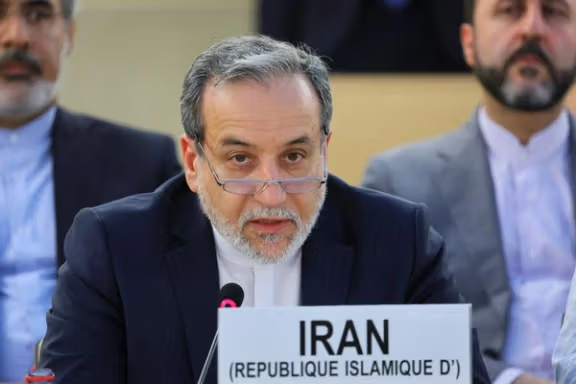
Iran's foreign minister on Monday insisted Iran would not give up enrichment and the United States has no way to end it militarily, hours after US President Donald Trump vowed to wipe out Iran's nuclear sites again if it revived its activities.
"All should know that we Iranians have NOT BOUGHT our PEACEFUL nuclear program; we have BUILT IT WITH BLOOD, SWEAT, AND TEARS," Araghchi posted on X on Monday.
"Yes, our enrichment facilities are severely damaged, but our DETERMINATION IS NOT."
Trump earlier in the day warned that if the Islamic Republic moved toward any form of nuclear weapons capability, he would not hesitate to carry out further strikes.
“They can start again. If they do, we'll wipe it out faster than you can wave your finger at it. We'll have to do that. We will do that gladly, openly and gladly,” Trump said.
On Sunday, Trump rapped previous statements by Araghchi, saying Iran is “stupid” to insist on uranium enrichment.
"They still talk about enrichment. I mean, who would do that? ... How stupid can you be to say that?" Trump said.
On his message on X, Araghchi said the damage of the military strike were severe, but Iran will follow through with enrichment plans.
“The technology and know-how that our formidable human resources have developed cannot be destroyed by bombings. Yes, our enrichment facilities are severely damaged, but our determination is not,” Araghchi said.
"Iran knows exactly what happened during the recent American-Israeli aggression, both to us and our adversaries, including the extent of blows that are still being censored," Araghchi added.
Iran fired 13 missiles towards the United Stated Al Udeid based on Qatar on June 23 and one day after US attack on nuclear facilities in Fordow, Natanz and Esfahan.
At the time, President Trump said "13 (missiles) were knocked down, and 1 was ‘set free,’ because it was headed in a nonthreatening direction."
Iran International reported on July 11 citing satellite imagery that a cutting-edge communications hub within the United States base in Qatar was apparently destroyed due to Iran missile attack.
Israel launched a 12-day military campaign against Iran on June 13, killing hundreds of Iranian military personnel, nuclear scientists and civilians. In retaliation, missile strikes by Iran killed 29 Israeli civilians.

Sara Gohari, a 29-year-old Afghan sociology student living in Iran has been detained after traveling to the country’s eastern border to document the forced deportation of Afghan refugees, her lawyer and a rights group said.
The case underscores official sensitivity around a populist push to expel mostly impoverished Afghan migrants citing alleged security concerns after Tehran was worsted in a conflict with Israel.
Her lawyer Reza Shafakhah told Shargh newspaper she has been charged with launching propaganda against the Islamic Republic and photographing prohibited sites.
Since the outbreak of a 12-day war with Israel last month, nearly half a million Afghans have been deported from Iran—many of them facing violence and persecution upon return to Taliban-controlled Afghanistan and enduring inhumane conditions during expulsion, according to UN experts.
Gohari was arrested on July 6 at the Taybad border crossing in Razavi Khorasan province, where she had gone to conduct independent research on Afghan migrants, according to the rights group Hengaw.
The crossing connects Iran to Afghanistan’s Herat province via the town of Islam Qala and is a major transit point used by Iranian authorities in the ongoing mass deportations. The arrest was reportedly carried out without a warrant, and for over 10 days, Gohari's family and legal counsel had no contact with her.
The university of Tehran student had previously posted on Instagram that she intended to collect and share stories of Afghans being forcibly returned from Iran. After her arrest, she was held in solitary confinement for nearly three weeks at the Intelligence Ministry’s detention center in Mashhad before being transferred to Torbat-e Jam Prison, her lawyer said.
The prison is near Mashad, gaining attention gained due to executions, often in connection with drug-related charges
The university student's case was made public on July 22, when her lawyer posted to X that Gohari had been charged with “propaganda against the state.” He said the case is currently under review by the Taybad County Prosecutor’s Office.
In his follow-up interview with Shargh, Shafakhah said authorities have set bail at 500 million tomans (about $10,000), and efforts are underway to secure her temporary release.
Supporters have launched a social media campaign using the hashtag #WhereIsSaraGohari to pressure Iranian authorities for answers on her detention and legal status.
Authorities have released no details about the evidence against Gohari. Her sudden disappearance, extended incommunicado detention, and transfer between facilities have intensified concerns about the Islamic Republic’s treatment of Afghan migrants, students, and researchers.
Vahid Yaghoubi, a member of Iran’s Steel Producers Association, said steelmakers have faced a 90% power cut since late April, leaving many factories with just 2–3% of their required electricity -- “not even enough to light facility walkways,” he told state media.
While some industrial zones have retained limited access to electricity, steel producers have borne the brunt of the nationwide power crisis, he said.
The energy restrictions, originally presented as a temporary two-week measure by the Energy Ministry, have stretched over two months now, Yaghoubi added.
“Almost all steel plants are now shut,” he added, saying that even companies that invested in their own power plants -- known as Article 4 facilities -- have been unable to use their electricity due to government intervention.
The Energy Ministry has requested control of these privately funded power stations to manage the national grid. Industry officials argue that the move contradicts existing contracts that prioritize use of this energy for the companies that invested in such power stations.
Iran’s steel industry, which produces over 30 million tons annually and is among the world’s top ten producers, plays a key role in the country’s non-oil exports.
Some firms have turned to Iran’s energy exchange to buy “green electricity” at premium prices in an attempt to keep minimal operations running. However, Yaghoubi said even these paid deliveries were disrupted, with some companies experiencing arbitrary outages.
18,000 workers unpaid at Esfahan Steel Company
The crisis has rippled beyond production, with some companies now unable to pay workers due to frozen accounts and mounting financial strain.
The head of Esfahan Steel Company, Iran's largest, said on Tuesday that the wages of 18,000 workers have been delayed after Iran’s tax authority froze the firm’s bank accounts over unpaid taxes, according to local media.
Ardeshir Afzali told ILNA news agency that the Tax Organization has withdrawn substantial funds from the company’s accounts but has yet to lift the freeze.
He criticized the move, saying authorities “do not understand the fragile post-war economic conditions or the difficulties facing producers.”